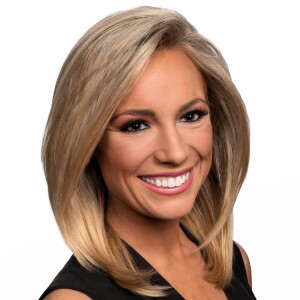The Rebound Indiana is a new initiative from WRTV to help you navigate the financial impact of the COVID-19 pandemic. We are your source to find all of the information you need on the help that’s available and how to access those resources. We are focused on helping you find employment, make ends meet, manage the pressure of these unprecedented times, and ensure these programs work as promised. Visit theINDYchannel.com/rebound for more information.
INDIANAPOLIS — The limited access to treatment during the COVID-19 pandemic for those with substance use disorders has brought a spike in the use of the opioid overdose reversal drug, naloxone.
On top of that, the Indiana State Department of Health is strained with the heavy lifting the coronavirus has brought on.
More than 4,700 Hoosiers have overdosed since the beginning of 2020. It is a 35 percent increase since this time last year, Douglas Huntsinger, executive director for drug prevention, treatment, and enforcement for the state of Indiana, said.
These numbers are why the state has put forward $1 million to make 25,000 doses of naloxone available to those who need it.
It is a fight that Dotti Grubb, of Danville, has been tirelessly fighting. Her 38-year-old son has been suffering from addiction for the past 16 years. It is a lonely road, but Grubb has some protection to keep her son fighting another day.
"I am very thankful and he is very thankful for naloxone because it has saved his life several times," Grubb said. "I have administered it several times."
Grubb is one of the thousands of Hoosiers carrying naloxone in the case of an overdose.
"Once the disease has hijacked the brain, it is no longer their choice," Huntsinger said. "And we should do everything we can to save people. Especially when it is so easy as using naloxone."
Huntsinger says because of the pandemic and the lack of access to in-person treatment for addicts, it has been a brutal cycle for those facing addiction.
"This is the biggest thing that we can do right now while people are still disconnected, having to do things virtually and not have the in-person, this is the one thing that we can do to ensure that we save as many lives as possible," Huntsinger said.
With a $1 million state opioid response grant from the Health and Human Services Administration, the state partnered with the non-profit, Overdose Lifeline, to fund 25,000 doses of naloxone across the state.
"Substance use disorder, opioid use disorder is a chronic disease in the brain," Justin Phillips, the executive director of Overdose Lifeline, said. "And we would never refuse someone with another disease, life-saving emergency medication."
Overdose Lifelines has been getting naloxone in the hands of Hoosier families for six years, but the accessibility to supply was never simple.
"This is going to have a huge impact because it is 25,000 kits," Phillips said. "We didn't have this much access, we didn't have that much easy access. We didn't have this ability really 24-7 if required to get people the overdose reversal drug. So we are going to save lives."
This state-funded naloxone supply has been delivered to Overdose Lifeline. For Phillips, this cause is personal. Her son, Aaron, overdosed in 2013. She does not want any family to experience the same thing she is already familiar with.
"We know grassroots distribution is effective," Phillips said. "We have the reputation in the communities, we have partners on the ground across the state that can help make this happen. We are just grateful that we can do some really life-saving stuff in the middle of all this difficult time in our country."
Grubb keeps her naloxone supply stocked through Overdose Lifeline and wants every person with an addicted loved one to do the same.
"There are just so many people that just don't understand the value of it and how important it is for everyone," Grubb said. "Everyone should be carrying it."
The 25,000 doses of naloxone order by the state is available to any family, individual or organization the life-saving drug in the state. It can be requested through Overdose Lifeline hereor email them at contact@OverdoseLifeline.org.




